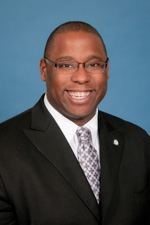There was an important post on TIME by Aaron Gouveia about the disparate handling of two cases involving 9-year-old girls who were put in potentially unsafe situations by their parents in the past few months. The more recent of the two cases was the now infamous situation where a 9-year-old girl at an Arizona gun range was handed an Uzi submachine gun — notoriously hard-to-control — and promptly lost her grip while firing and killed the instructor. The latter was a case where a working mother let her child play unattended in a nearby playground with other kids this summer after the girl’s laptop was stolen and she had nothing to do all day while mom was working.
Many other commentators have expended a lot of internet ink pointing out the absurd overreaction of law enforcement and the other parents who narc’d on the mom, particularly given that there was actually an extremely low risk of anything terrible happening and just a generation or so ago 9-year-old kids were wandering all over their communities without any adult supervision at all and no cell phones. The mother in this case has been severely and disproportionately punished, as we’ll see in a moment.
There is one angle not really covered by Gouveia which is that the mother and child in the playground case were Black (unlike the family in the other case), and there is a long history in the United States of forcing Black mothers to work extremely long hours for poor compensation while shaming and even criminalizing how they are compelled to raise their kids under those circumstances.
Nevertheless, Gouveia summarizes the two cases well in his article and raises the other crucial contrast in how the cases were handled with regard to a kid on a playground surrounded by other kids and parents versus a child executing a man by accident. And that’s the gun angle:
Instead of a loaded weapon, Harrell armed her daughter with a phone, and sent her to a playground with lots of other kids and adults. The only shooting that took place was the cool water from a splash pad and some hoops on the basketball courts. There were even volunteers who came by the playground with free snacks. While perhaps not ideal since Harrell was at work, she sent her daughter to a family-friendly place with an environment geared toward fun and summertime frivolity. The same kind of place I routinely rode my bike to at the age of nine.
Yet Harrell is the one arrested. Who lost her job. Who spent 17 days in jail, temporarily lost custody of her daughter, and faces 10 years in prison.
Harrell’s detractors claim someone could’ve kidnapped her daughter at the playground, which is true. But while there is a low risk of child abduction at a public playground in broad daylight, it pales in comparison to the risks involved with letting a 9-year-old fire a machine gun. So please stop referencing the 2nd amendment, because I’m certain our Founding Fathers weren’t contemplating the benefits of letting children fire hundreds of rounds per minute when they drafted the right to bear arms.
As usual, guns in the United States get special treatment*, especially when “accidents” happen in public or in the home, again and again and again.
So, in addition to the important context of criminalization of Black Motherhood, these contrasting situations (and their handling) speak to the wider problem of how local law enforcement and prosecutors handle gun-related accidents involving children (most of which involve a child’s death or serious injury, rather than that of the adult instructor).
7,500 children a year are admitted to U.S. hospitals with gunshot wounds, according to the American Academy of Pediatrics. Of those, 500 die each year. Many others are pronounced dead on scene. Yet, authorities routinely refuse to file child endangerment charges against parents when children accidentally shoot each other or themselves with unsecured firearms. Take a look at this set of clippings by David Waldman of the dozens and dozens of children under 14 who died through accidental shootings in 2013, and note how the cases were resolved. It’s most often deemed an “accident” and the case is closed without charges against anyone, including the adults. Which is insane.
Read more




 Following another round of bigoted tweets from Boston Bruins fans,
Following another round of bigoted tweets from Boston Bruins fans, 


